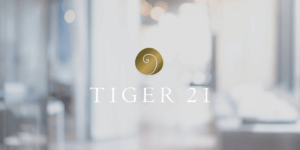Member & Chair Insights
April 30, 2025
[Recording] The Legacy of Wealth: How—and When—to Prepare Your Heirs
What does it truly mean to establish a legacy? In this conversation powered by TIGER 21, our panel of wealth, estate, and family office experts went beyond tax considerations and trust structures to get to the heart of preparing your heirs to carry out the vision and values established for the wealth they will inherit. Download the call summary (PDF) Listen in as TIGER 21 Chairs Ron Diamond, Doug Johnson, and Michele Skelding, discuss the common considerations and blind spots ultra-high-net-worth wealth creators encounter. Discover best practices from ultra-wealthy individuals and families for establishing a meani...












